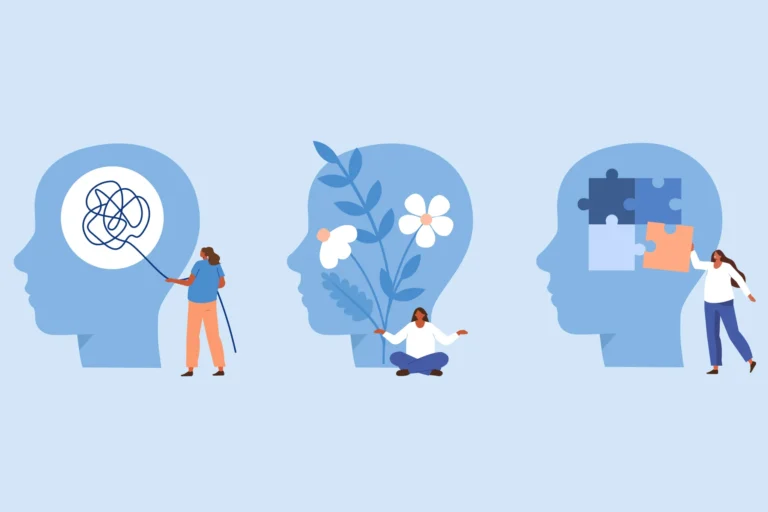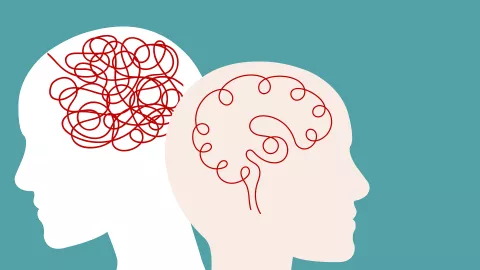Strategies to enhance self-awareness and mental health
Recognizing the importance of self-reflection
Self-reflection is an essential practice that allows individuals to gain insight into their thoughts, emotions, and behaviors. It provides an opportunity for introspection and self-awareness, enabling individuals to identify patterns, strengths, and areas for growth in their lives. By taking the time to reflect on past experiences and current circumstances, individuals can better understand themselves and their reactions to various situations.
Through self-reflection, individuals can foster personal growth and develop a deeper understanding of their values, beliefs, and goals. It is a process that encourages self-exploration and inner dialogue, leading to greater self-acceptance and clarity. By engaging in self-reflection regularly, individuals can enhance their emotional intelligence, improve decision-making skills, and cultivate a sense of purpose and direction in their lives.
Understanding the impact of thoughts on emotions
Our thoughts play a critical role in shaping our emotional experiences. The way we interpret events and situations in our lives can significantly impact how we feel. Negative or distorted thoughts can lead to feelings of anxiety, sadness, or anger, while positive and rational thoughts can promote a sense of calm and contentment. It is essential to recognize the power of our thoughts in influencing our emotional well-being and to practice cultivating a more mindful and balanced approach to our internal dialogue.
By becoming more aware of our thought patterns and actively challenging negative or irrational beliefs, we can begin to reframe our perceptions and improve our emotional responses. Cognitive-behavioral techniques, such as identifying and restructuring unhelpful thoughts, can be valuable tools in retraining the mind to adopt healthier and more adaptive thinking patterns. By developing a habit of monitoring our thoughts and intentionally choosing to focus on constructive and realistic interpretations, we can create a more positive and resilient emotional landscape.
Developing mindfulness practices
Mindfulness practices encompass a range of techniques aimed at enhancing present-moment awareness and cultivating a non-judgmental attitude. By engaging in mindfulness, individuals can learn to observe their thoughts, emotions, and physical sensations without becoming entangled in them. This heightened state of mindfulness can foster greater clarity of mind and improved emotional regulation in the face of life’s challenges, leading to reduced stress and enhanced overall well-being.
One common mindfulness practice is mindfulness meditation, where individuals focus their attention on their breath or a mantra. This intentional awareness of the present moment helps to anchor the mind and cultivate a sense of calm. Additionally, activities such as mindful walking, eating, and body scanning can also encourage mindfulness in daily life. By consistently incorporating these practices into one’s routine, individuals can gradually strengthen their mindfulness muscle and experience the transformative benefits of living more consciously and intentionally.
Identifying triggers for stress and anxiety
To effectively manage stress and anxiety, it is crucial to identify the triggers that ignite these overwhelming feelings. Triggers can vary from person to person and may stem from various sources such as work-related pressures, relationship dynamics, financial concerns, or underlying health issues. Recognizing these triggers involves being mindful of your emotional responses in different situations and noting patterns that may lead to increased stress levels.
Moreover, keeping a journal to track instances of heightened anxiety or stress can help pinpoint specific triggers and patterns over time. Paying attention to recurring thoughts, physical sensations, and behaviors during these moments can provide valuable insights into what may be causing distress. By honing in on these triggers, individuals can then take proactive steps to address and manage them effectively for improved mental well-being.
Cultivating self-compassion and empathy
One of the key components of mental well-being is the ability to cultivate self-compassion and empathy towards oneself. This involves treating oneself with kindness, understanding, and acceptance, especially in times of difficulty or failure. Developing self-compassion allows individuals to acknowledge their own imperfections and mistakes without self-judgment, fostering a sense of inner peace and resilience in the face of challenges.
Moreover, practicing empathy towards oneself involves tuning into one’s own emotions and experiences with sensitivity and compassion. By recognizing and validating one’s own feelings, individuals can develop a deeper connection with themselves and cultivate a sense of personal understanding and acceptance. This process of self-empathy not only enhances self-awareness but also promotes emotional healing and growth, ultimately leading to improved mental health and overall well-being.
Exploring past experiences and their influence on current mental health
Unraveling the intricacies of one’s mental health often entails delving into the depths of past experiences that have shaped and molded an individual’s present state of being. The narratives of our past, whether laden with joyous memories or laden with sorrowful recollections, hold a profound influence over our emotional well-being and psychological equilibrium. By excavating the layers of our history, we can decipher the roots of our triggers, fears, and coping mechanisms that manifest in our daily lives.
Through the process of exploring our past experiences, we are afforded the opportunity to shed light on the shadows that may have lingered in the recesses of our minds, influencing our beliefs, behaviors, and relationships. By unwinding the tapestry of our past, we can gain insight into the patterns that have emerged and understand the ripple effects they have cast on our current mental landscape. Only by acknowledging and confronting the ghosts of our history can we begin to untangle the threads that bind us, paving the way for healing, growth, and ultimately, a harmonious state of mental well-being.
Setting boundaries and prioritizing self-care
Establishing boundaries and making self-care a top priority are essential components of maintaining mental well-being. Setting boundaries involves clearly communicating your limits and needs to others, which can help prevent feelings of resentment and burnout. By defining what is acceptable and not acceptable in your relationships and daily life, you are asserting your worth and promoting respect for yourself.
Prioritizing self-care is not a selfish act but a necessary one for overall health and happiness. Taking time to nurture your physical, emotional, and mental needs allows you to recharge and show up fully in all areas of your life. Whether it be through practicing mindfulness, engaging in hobbies, or simply taking a moment to breathe, carving out time for self-care is an investment in your well-being that pays dividends in the long run.
Seeking support from friends, family, or mental health professionals
Building a strong support network is crucial when navigating the complexities of mental health. Friends and family can provide invaluable emotional support, understanding, and companionship during challenging times. Their presence alone can serve as a comforting reminder that one is not alone in their struggles. Sharing thoughts and feelings with loved ones can foster a sense of connection and alleviate feelings of isolation that often accompany mental health issues.
In some cases, seeking support from mental health professionals may be necessary to address more complex mental health conditions or to receive specialized guidance and treatment. Trained therapists or counselors can offer professional insights, coping mechanisms, and therapeutic interventions tailored to individual needs. Their expertise can help individuals gain a deeper understanding of their emotions, behaviors, and thought patterns, facilitating the journey towards improved mental well-being and resilience.
Engaging in regular physical activity for overall well-being
Engaging in regular physical activity is a crucial component of maintaining overall well-being. Physical exercise not only contributes to physical health but also plays a significant role in supporting mental and emotional well-being. The release of endorphins during exercise can help reduce stress, anxiety, and depression, while also improving mood and overall cognitive function.
Furthermore, regular physical activity is essential for promoting better sleep patterns, increasing energy levels, and enhancing overall quality of life. Whether it is aerobic exercises like running or cycling, strength training with weights, or mind-body practices such as yoga or Pilates, finding activities that are enjoyable and sustainable is key to integrating physical activity into daily routines. By prioritizing regular exercise, individuals can enhance their physical health, boost their mental resilience, and cultivate a greater sense of well-being in their lives.
Practicing gratitude and positive affirmations
Practicing gratitude involves consciously acknowledging and appreciating the positive aspects of one’s life, no matter how small or seemingly insignificant they may be. By cultivating a mindset of gratitude, individuals can shift their focus from what is lacking to what is already present, fostering a sense of contentment and fulfillment. Engaging in daily practices such as keeping a gratitude journal or reflecting on moments of gratitude can help rewire the brain to naturally incline towards positivity and optimism.
Similarly, integrating positive affirmations into one’s daily routine can have a profound impact on mental well-being. Positive affirmations are statements that reflect desired qualities or outcomes, repeated to oneself with conviction and belief. By affirming one’s strengths, values, and aspirations, individuals can counter negative self-talk and build self-confidence. Incorporating affirmations into daily rituals, such as reciting them during meditation or writing them on sticky notes as visual reminders, can instill a sense of empowerment and self-worth.
Journaling as a tool for self-discovery and emotional processing
Journaling serves as a powerful mechanism for individuals to delve into their innermost thoughts and emotions in a structured manner. By putting pen to paper, individuals are able to externalize their feelings and gain clarity on complex issues that may be brewing beneath the surface. The act of journaling allows for a safe space where individuals can freely express themselves without judgment or inhibition.
Moreover, journaling enables individuals to track patterns of behavior and thought over time, providing valuable insights into their inner workings and facilitating self-discovery. By consistently engaging in this practice, one can identify recurring themes, triggers, and emotions that may be influencing their mental well-being. Through the process of introspection and reflection that journaling facilitates, individuals can develop a deeper understanding of themselves and their emotional responses, paving the way for greater personal growth and emotional processing.
Creating a daily routine that promotes balance and stability
Establishing a daily routine that prioritizes balance and stability is essential for maintaining optimal mental well-being. By structuring your day with intention and purpose, you can create a sense of predictability and control, which can help reduce feelings of overwhelm and anxiety. Begin by allocating specific time slots for different activities, such as work, relaxation, exercise, and socializing, to ensure a well-rounded approach to your daily schedule.
Moreover, incorporating self-care practices into your routine can foster a sense of nourishment and rejuvenation. This can include activities such as practicing mindfulness, engaging in hobbies you enjoy, or simply setting aside time for relaxation and reflection. By consistently dedicating time to prioritize your mental and emotional needs, you can cultivate a greater sense of balance and stability in your daily life.
Continuously evaluating and adjusting self-awareness strategies for optimal mental health.
Self-awareness is a key component of maintaining optimal mental health, as it allows individuals to understand their thoughts, emotions, and behaviors more deeply. Continuously evaluating and adjusting self-awareness strategies is essential in fostering personal growth and well-being. By regularly reflecting on one’s thoughts and actions, individuals can identify areas for improvement and make necessary changes to support their mental health.
In this process of self-evaluation, it is crucial to approach oneself with compassion and openness. Recognizing both strengths and areas needing development without judgment is fundamental in creating a balanced self-awareness practice. By exploring different self-awareness techniques such as mindfulness, journaling, and seeking feedback from others, individuals can gain valuable insights into their own psyche and make informed choices towards better mental health.







